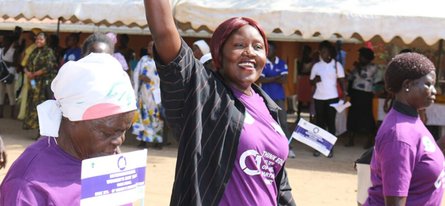
We’ve been talking about localization of aid in the humanitarian sector for decades. Localization is the process of recognizing and respecting that decision-making on aid and its implementation should ultimately rest with the affected communities in order to better address needs.
Despite the idea of localization being around for so long, it was only at the 2016 World Humanitarian Summit that it really came to the forefront of discussions, culminating in the Grand Bargain Commitments—where donors and aid organizations committed to providing 25 per cent of funding to local organizations by 2020. The subsequent Charter4Change outlined eight commitments organizations could sign on to support localization.
Many of these important conversations and actions came about thanks to the incredible thought leadership and sheer perseverance of Degan Ali and NEAR Network, who challenged the sector to not just talk about shifting power, but also to set meaningful targets linked to this shift.